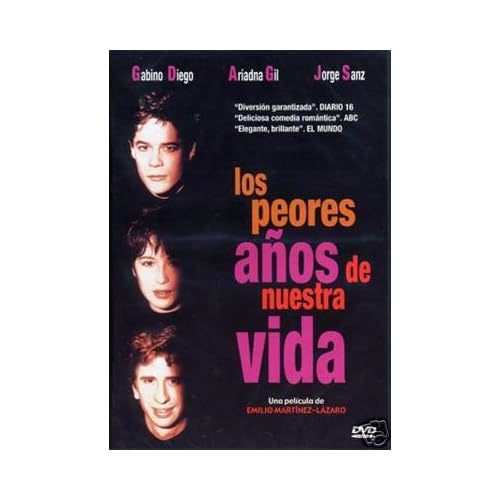
This morning I chanced upon half of Woody Allen's Annie Hall on MGM. One of my favorite scenes there is the one leading to the break up. There's a split screen and we see Annie and Alvy in their respective therapists' offices. Annie is guilty that she's doing well with treatments which Alvy is paying for, and Alvy is stuck still with his own neuroses. The therapists ask them how their sex life is. They're both right on the count: three times a week. For Alvy, that's dismal, for Annie, that's frequent and more than enough. Later, in the plane from California going back to New York, we hear them thinking again. The relationship isn't going very well. Perhaps it would be better if they break up. Alvy agrees. A relationship is a shark, he says. It should keep on going forward. What they have in their hands is a dead shark. So they break up and it's only later, while making a huge stink with the lobsters with the new woman he's dating, that Alvy realizes his mistake. This new woman doesn't see what the fuss is about the lobsters. He gets on a plane and tries to convince Annie to get back together. On a health food cafe in an LA sidewalk, they finally break up.

Last week, also caught the parts of Manhattan. Manhattan starts with the voice of the Woody Allenesque character listing down all the things he loves about the city. What I like about that movie again has something to do with relationships. Isaac breaks up with his 17 year old girlfriend because he's fallen in love with his best friend's mistress. He tells her that she's way too young, and she should pursue acting studies in London. When the mistress goes back to the best friend, he suddenly misses Mariel Hemingway. He runs down New York's streets. But when he arrives outside her apartment building, she's already dressed up and headed to the airport. Isaac's profession of love comes too late, because she's been hurt, and she's now made up her mind to go to London. But if Isaac can wait six months...
I like it that both movies don't force on a reconciliation scene. Well, in Annie Hall, the Woody Allen character writes a play with characters who suspiciously re-enact the scene in the health food store, and instead of walking away from each other, they kiss and make up. But he does say that the things he can't control in life, he can at least correct in his writings. In both Allen movies, the (former) lovers either end up as friends, or they still move in the same small circles that they occupy. In Annie Hall, Allen says that he realizes that the relationships were wonderful while they lasted. As he stands in the street corner after having coffee with Annie, he tells us an anecdote about the man whose brother thinks he's a chicken. The doctor says, Well, why don't you turn him in so we can treat him? The man says, I would have done that, except I need the eggs. It's the worst possible case of can't leave with (it/you), can't leave without (it/you).

Which brings me to the Spanish film I watched this afternoon, Los Peores Anos de Nuestra Vida, which roughly translates to The Worst Years of Our Lives. It starts with Alberto's voice speaking into a recorder, starting chapter 1 of his novel. It reminds me so much of Manhattan's opening scenes as well. Also, Alberto is the goofy, not quite guapo young man with a more handsome brother and he does remind me a lot of a younger Woody Allen. Alberto's brother Roberto ends up with all the girls, even the ones which Alberto likes. So it comes to no surprise when both brothers fall for Maria, the mistress of a sculptor. Alberto wails and whines that he can't understand women, and though they find him funny, they wouldn't sleep with him. So Roberto gives his brother a hand. Together they plot the break up of Santiago and Maria. They send an anonymous letter to Santiago's wife. Maria gets depressed after the confrontation with Santiago's wife, who tells her empathically that Santiago stays with him, and it's really all for Maria's own good. Maria and Roberto share a kiss, but since Roberto is also busy with his own affair with an older woman, he decides to give his brother and Maria a push in the relationship direction. Then things go wrong, and there are Grand Romantic Gestures in the last few scenes involving a train ticket to Paris and sibling generosity, which I don't quite buy. I mean, real life doesn't afford us any quick turn arounds.
But this isn't a movie concerned with real life. One scene has Alberto watching a romantic movie, and he winces, guys like him don't get the girls in real life, so cinema is just a big piece of crap. The actors get disturbed and even the director turns to Alberto. He is trying to direct a movie, not aiming for cinema verite like De Sica before he got rich. So I guess that prepares us for the kind of ending The Worst Years of Our Lives has.
Which also reminds me that since Woody Allen has probably exhausted all the possible locations in New York, he has turned his gaze on Europe. His next movie is set in Spain, starring Scarlett Johanson, Penelope Cruz and Javier Bardem. Saw the trailer of Vicky Cristina Barcelona in YouTube quite recently.
No comments:
Post a Comment